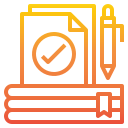Resilience and Focus in Fast Markets
Batch meetings, mute nonessential alerts, and block focus time like an important appointment. Use a daily shutdown ritual to mark work complete. What single distraction derails you most? Post it, and we’ll suggest a small habit to reclaim your focus.
Resilience and Focus in Fast Markets
Short walks, real meals, and daylight breaks beat heroic all-nighters. Treat sleep as infrastructure for learning. Track one habit for two weeks and measure its impact on output quality. Share your routine; we’ll swap ideas that travel well across busy calendars.





